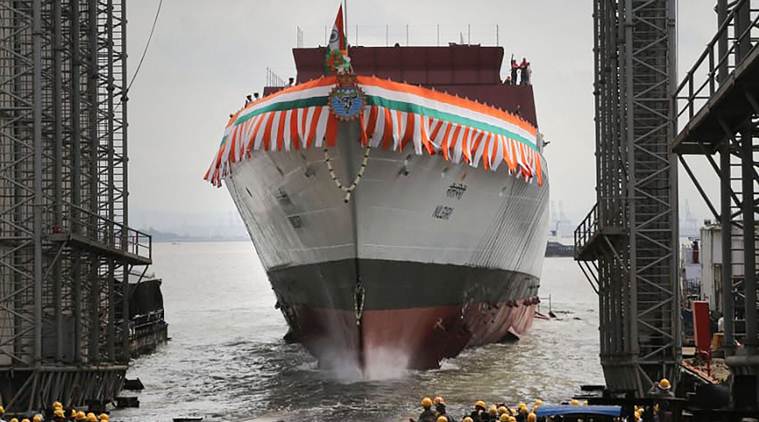According to a schedule prepared by the Ministry of External Affairs, in coordination with the Ministry of Civil Aviation, the first of the 64 flights will carry 209 passengers from Abu Dhabi to Cochin International Airport on May 7.
Starting Thursday, India will operate 64 flights until May 13 and use three Navy ships, as part of Phase I of an evacuation plan, to bring home nearly 15,000 Indians stranded overseas.
According to a schedule prepared by the Ministry of External Affairs, in coordination with the Ministry of Civil Aviation, the first of the 64 flights will carry 209 passengers from Abu Dhabi to Cochin International Airport on May 7.
Another flight will transport 200 passengers from Dubai to Kozhikode the same day.
Navy ships will be used to evacuate people from the Maldives and the UAE.
For Kerala, this poses a new challenge given the large number of expatriates returning home. In the first phase of evacuation, Kerala expects 2,250 people to return.
After a review meeting, Chief Minister Pinarayi Vijayan said: “Kerala has written to Prime Minister Narendra Modi to ensure that Covid-19 test is held for all passengers before they take the flight to India. We have reminded the PM that India brought back passengers stranded in Italy and Iran after Indian medical teams went there and subjected the evacuees to the Covid-19 test. If the Centre is not ready, we are willing to send medical teams.”
“If one or two on board the flight has the virus, all passengers will be at risk. This will increase the risk of spread of infection not only in Kerala but across the country. It is important that our brethren reach home. But we cannot make any relaxation in safety measures and laid-down protocols. We have asked the Centre to review its decision,” Vijayan said.
Between May 7 and 13, India plans to operate 10 flights from the UAE, seven flights each from the US, UK, Bangladesh and Malaysia, five each from Saudi Arabia, Singapore, Kuwait and the Philippines, and two flights from Qatar, Oman and Bahrain.
Of the 64 flights, 15 would be to Kerala, 11 each to Delhi and Tamil Nadu, seven each to Maharashtra and Telangana, and the rest to Gujarat, Punjab, Jammu and Kashmir, Karnataka, Uttar Pradesh.
Indians in “distress” will be given priority. The MHA listed categories being brought back first: “Laid off migrant workers, short-term visa-holders with expiry of visas, persons with medical emergency, pregnant women, elderly, those required to return to India due to death of family member, students.”
Tickets for these flights, which will be operated by Air India, will have to be purchased by the passengers.
Civil Aviation Minister Hardeep Singh Puri told reporters: “How we ramp up operations after the first week depends on factors like our experience of the first week — the states’ readiness to receive people on these flights in terms of quarantine centres and hospitals, and the behaviour of the virus. For those who are genuinely stranded and are not in a condition to pay, the government will also look at their case.”
Separately, the Indian Navy deployed three ships Monday night for operation Samudra Setu. While INS Jalashwa and INS Magar set sail for the Maldives to start evacuation from May 8, another vessel, INS Shardul, left for Dubai.
Sources said this plan may turn out to be the country’s largest evacuation operation. While the numbers are dynamic, they could go up to 2 lakh Indians — the only playbook New Delhi has, in terms of scale, is the 1990 airlift of 1.7 lakh people from Kuwait following its invasion by Iraq.
The MHA on Monday said “medical screening of passengers” would be done before a flight. “Only asymptomatic passengers would be allowed to travel,” it said.
“On reaching the destination, everyone would have to register on the Aarogya Setu app. Everyone would be medically screened. After scrutiny, they would be quarantined for 14 days, either in a hospital or in an institutional quarantine on payment-basis, by the concerned State government. COVID test would be done after 14 days and further action would be taken according to health protocols. State Governments are being advised to make arrangements.,” it said.
Worried, Kerala has already changed its quarantine strategy. All passengers, both symptomatic and asymptomatic, who reach airports in the state will have to undergo seven days of quarantine in a government-sponsored facility. On the seventh day, they will be subjected to the RT-PCR test and those who test negative will be sent home for another week of quarantine.
Chief Minister Vijayan said the government will bear the cost of the quarantine. “As there is no testing abroad, we are forced to examine all.”
As many as 4.42 lakh people from Kerala have registered their names with the state agency for the welfare of expatriates.
The state disaster management authority and the PWD have identified 2.50 lakh beds across Kerala for quarantine purposes. Of these, 1.63 lakh beds are ready to use. Vacant houses, where people can be placed under isolation, have been identified by local-self-government bodies.
— With Pranav Mukul, Krishn Kaushik in New Delhi
? The Indian Express is now on Telegram. Click here to join our channel (@indianexpress) and stay updated with the latest headlines
For all the latest India News, download Indian Express App.
Source: Read Full Article





